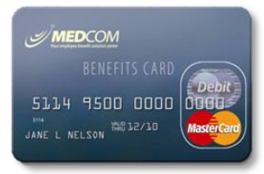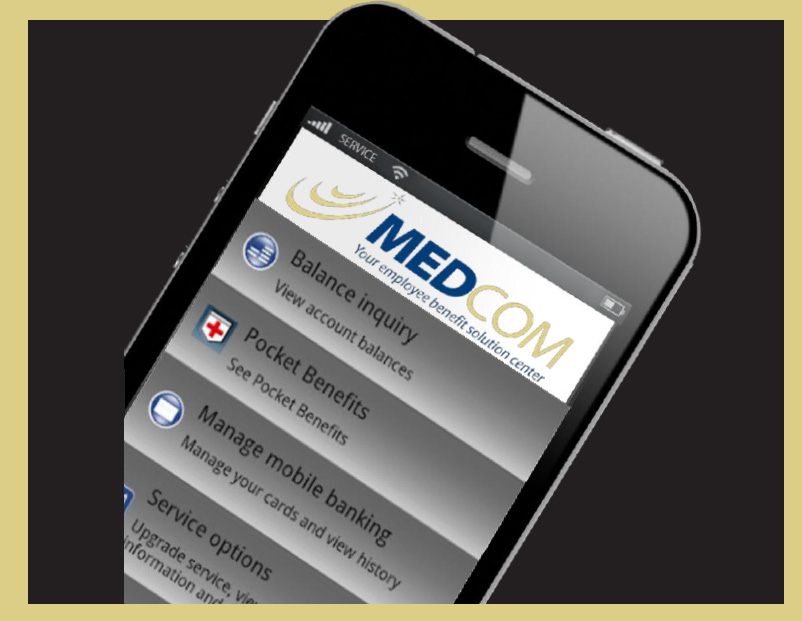Flexible Spending (FSA)
Effingham County Schools provides two Flexible Spending Accounts (FSAs) through Medcom. FSAs allow you to set aside a portion of your paycheck, pre-tax, to use for eligible expenses. Since Federal Income and Social Security taxes are not deducted from your contributions, it lowers your taxable income. You can choose to enroll in the Healthcare FSA, which covers medical, dental, vision, pharmacy, and other related costs, and/or the Dependent Care FSA, which is primarily for dependent daycare expenses. If you're enrolled in a High Deductible Health Plan (HDHP), you may also opt for a Limited Purpose Healthcare FSA, which can only be used for dental and vision expenses.
Over-the-counter (OTC) drugs are available without requiring a prescription. Some examples of allowed OTC items are:
- Cough medicines
- Cold medicines
- Allergy medicines
- Pain relievers, such as acetaminophen
Healthcare FSA accounts are limited to $3,300 per year for 2025. If you're married, your spouse can contribute up to the maximum their employer allows as well. For 2026 the healthcare FSA will have an annual contribution of $3,400.
For Dependent Care FSAs, you may contribute up to $5,000 if you are married and filing a joint return, or if you are a single parent for 2025. If you are married and filing separately, you may contribute up to $2,500 per year per parent. For 2026, single individuals and married couples filing jointly may contribute up to $7,500. For married individuals filing separate returns, the limit is $3,750.
Use the money in these accounts to pay for eligible out-of-pocket healthcare (medical, dental, vision expenses) and dependent care (day care) expenses for yourself, your spouse, your children or for any person you claim as a dependent on your federal income tax return.
Remember to carefully estimate your plan year expenses when making an election. Typically, you must use all of the funds in your account by the end of the plan year or the money is forfeited per the IRS regulations.
2025 Plan Year Maximums
- Healthcare FSA: $3,300
- Dependent Care FSA: $5,000
2026 Plan Year Maximums
- Healthcare FSA: $3,400
- Dependent Care FSA: $7,500
Important Termination and Retirement Information:
Please note: if you terminate employment or retire, eligible FSA claims must be incurred prior to your benefits-end date, regardless of your FSA balance.
Healthcare FSA
For 2026, you may roll over up to $680 of unused Healthcare FSA monies into the next year's FSA plan, but you still want to estimate your current year FSA plan contribution carefully. According to the IRS guidelines, all unused FSA funds in excess of $680 will be forfeited.
You are not eligible to participate in the Healthcare Flexible Spending Account (FSA) plan if you are currently enrolled in a Health Savings Account (HSA).
A list of eligible vs ineligible expenses is available on the Resources page.
Dependent Care FSA
If your spouse is not employed, your dependent care expenses are not eligible for reimbursement unless your spouse is a full-time student or is physically or mentally incapable of caring for himself / herself.
Eligible Dependent Care FSA expenses include before and after-school programs, licensed day care centers, nursery school or preschool, summer day camps, transportation to and from eligible care, an adult-day-care center, or elder care (in your own home or someone else’s). You can elect a Dependent Care FSA even if you have declined health coverage
Eligible childcare providers can be individuals, such as a family member or friend. However, it's important to note that this category excludes individuals under the age of 19 who are related to you, including your own child or stepchild. Additionally, the caregiver cannot be someone whom you list as a dependent on your federal tax return.
To claim reimbursements for dependent care through this FSA, you must ensure that the service provider has either a federal tax ID number or a valid social security number. This documentation is essential to facilitate the reimbursement process.
Funds must be used by the end of the plan year to avoid forfeiture. However, the Dependent Care FSA plan includes a 2 ½ month grace period to incur claims. Dependent care FSA claims must be incurred by March 15 of the year following the end of the plan year to be considered for reimbursement.
Eligible Expenses Must Be for the Care of:
- A dependent child who is under age 13 and whom you claim as an exemption on your tax return
- A dependent child, elderly parent, or relative who is physically or mentally incapable of caring for himself or herself
Limited Purpose FSA
A Limited Purpose FSA is a healthcare spending account that can only be used for eligible vision and dental expenses. Unlike a Healthcare FSA, this account can be held at the same time as a Health Savings Account (HSA). When coordinated with an HSA, the limited purpose FSA can further reduce your taxes while allowing you to allocate HSA funds to other purposes – including retirement.
By eliminating the need to use your HSA funds for these expenses, you have more to spend on regular medical expenses. More important, funding dental and vision expenses from a limited purpose FSA may also allow you to keep more savings in your HSA. Over time, those additional savings can really add up.
Debit Cards & Manual Claims
Debit Card Purchases
You will receive a debit card for your FSA plan. This debit card may be used to pay for eligible medical care expenses. Using a debit card is a convenient way to pay for your FSA expenses as many health providers accept the debit card. When you use your debit card, the funds are pulled from your account and paid to the health provider directly. This eliminates the need for you to pay out-of-pocket and file a claim to be reimbursed.
Please remember to keep all FSA claim receipts, even if you use your debit card. Some debit card claims will require you to provide a receipt to the plan administrator. In the event the FSA administrator needs additional information from you, you will receive a communication requesting receipt(s).

Manual Claims
Not all vendors accept the debit card. Should you need to pay for an eligible expense and be reimbursed from your FSA, you will need to submit a claim to the address indicated on the claim form with appropriate documentation.
Use It or Lose It
The IRS requires that any unused money in your account at the end of the plan year must be retained by your employer. You must use all of the funds in your account by the end of the plan year or the funds are forfeited. However, the IRS allows Healthcare FSA plan members to roll over up to $680 of unused funds for use in the following year. The $680 roll over option does not apply to the Dependent Care FSA.
Plan Year
The plan year runs from January 1 through December 31. Refer to the Summary Plan Description (SPD) for details.
Mobile and Online Member Tools
Once you are enrolled, you may access https://medcom.wealthcareportal.com and register as a member. You may access your balance and claims information, and view other important FSA plan information on this website.
Medcom also offers a free mobile app for FSA participants to access your accounts from anywhere at any time. You will enjoy convenient mobile options to check balances, view transaction details, request a reimbursement, and submit documentation on the go.

